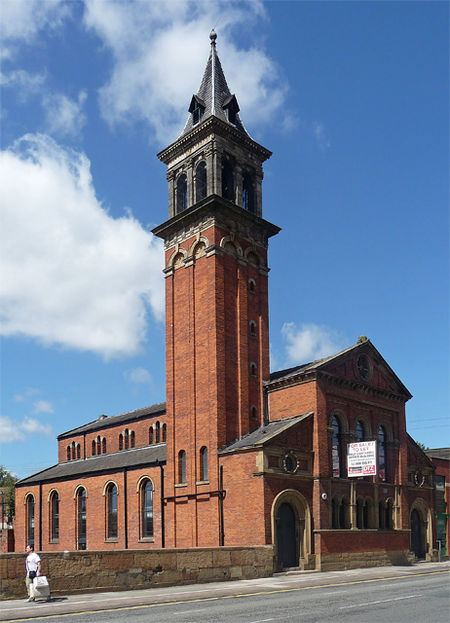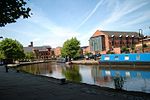Castlefield Congregational Chapel
Churches in ManchesterCongregational churches in EnglandEdward Walters buildingsFormer churches in EnglandGothic Revival church buildings in Greater Manchester ... and 2 more
Grade II listed churches in ManchesterRecording studios in Greater Manchester

Castlefield Congregational Chapel is a building located at 378 Deansgate, Manchester, England. The building originally opened as a Congregational chapel in 1858, and was designed by the local architect Edward Walters. It has been designated by English Heritage as a Grade II listed building. It is located in Castlefield, an Urban Heritage Park.The building was converted to a sound recording studio in the 1980s and owned by Pete Waterman, best known for Stock Aitken Waterman. Rick Astley recorded "Never Gonna Give You Up" in the chapel. Waterman sold the building in 2006 and it has since been converted to offices.
Excerpt from the Wikipedia article Castlefield Congregational Chapel (License: CC BY-SA 3.0, Authors, Images).Castlefield Congregational Chapel
Bridgewater Viaduct, Manchester City Centre
Geographical coordinates (GPS) Address Nearby Places Show on map
Geographical coordinates (GPS)
| Latitude | Longitude |
|---|---|
| N 53.47421 ° | E -2.25262 ° |
Address
Bridgewater Viaduct
M3 4LB Manchester, City Centre
England, United Kingdom
Open on Google Maps








